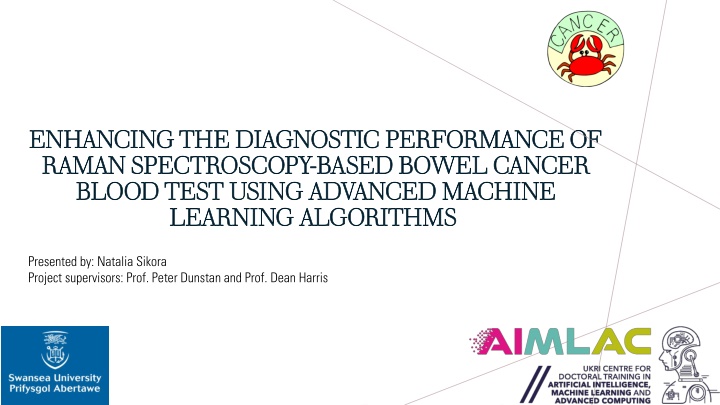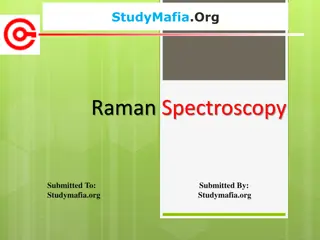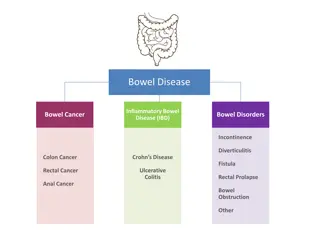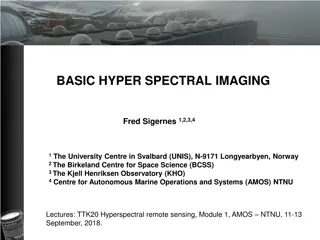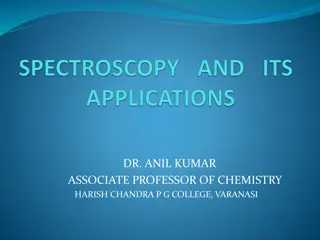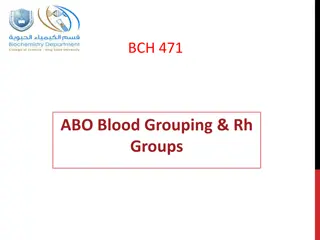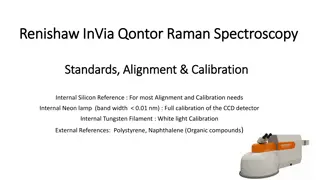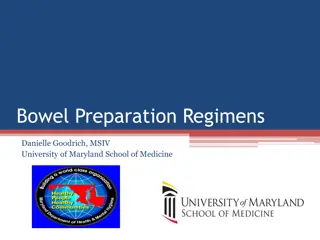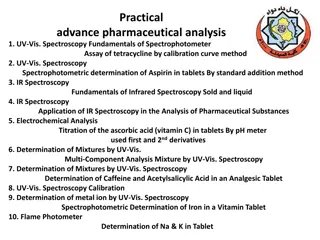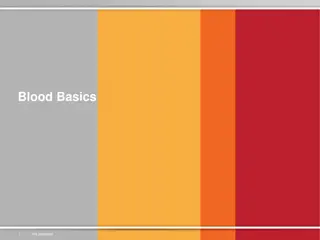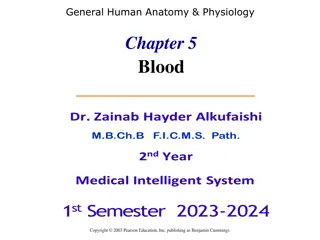Enhancing Diagnostic Performance of Raman Spectroscopy for Bowel Cancer Blood Test Using Machine Learning Algorithms
Combining Raman spectroscopy and advanced machine learning algorithms can improve the diagnostic accuracy of bowel cancer blood tests, allowing for quicker detection and better survival rates. This multidisciplinary approach offers a non-invasive method for diagnosing the 4th most common cancer in the UK. Suggestions for model improvement include optimizing ML classifiers, metanalysis, and integrating patient medical records into the analysis.
Download Presentation

Please find below an Image/Link to download the presentation.
The content on the website is provided AS IS for your information and personal use only. It may not be sold, licensed, or shared on other websites without obtaining consent from the author.If you encounter any issues during the download, it is possible that the publisher has removed the file from their server.
You are allowed to download the files provided on this website for personal or commercial use, subject to the condition that they are used lawfully. All files are the property of their respective owners.
The content on the website is provided AS IS for your information and personal use only. It may not be sold, licensed, or shared on other websites without obtaining consent from the author.
E N D
Presentation Transcript
ENHANCING THE DIAGNOSTIC PERFORMANCE OF ENHANCING THE DIAGNOSTIC PERFORMANCE OF RAMAN SPECTROSCOPY RAMAN SPECTROSCOPY- -BASED BOWEL CANCER BASED BOWEL CANCER BLOOD TEST USING ADVANCED MACHINE BLOOD TEST USING ADVANCED MACHINE LEARNING ALGORITHMS LEARNING ALGORITHMS Presented by: Natalia Sikora Project supervisors: Prof. Peter Dunstan and Prof. Dean Harris
Biofluids analysis in cancer research - combining Raman spectrophotometry and multiple machine learning techniques Image adapted from: (Averill and Eldredge, 2006) Image adapted from: (Berghian-Grosan and Magdas, 2020)
WHY IS THIS IMPORTANT? - A multidisciplinary approach allowing for a quicker diagnosis of the 4th most common cancer in the UK - Current diagnostic procedures are invasive diagnostic procedures are invasive and the disease is difficult to diagnose - Utilizing ML techniques for the analysis of biofluids may allow for fast detection the 4th most common cancer in the UK difficult to diagnose fast detection and a better survival rate a better survival rate HOW CAN WE IMPROVE THE MODEL? - Several ideas: subjecting the data from particle detectors to a range of optimized ML classifiers, metanalysis, building the patient s medical record into the model etc. - Filter out the spectral abnormalities with a program created for human serum analysis - Creating an algorithm where classifiers consider both, medical data and pre-processing budget in a medical research
